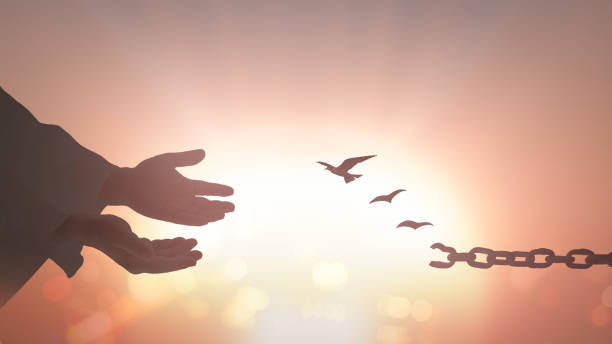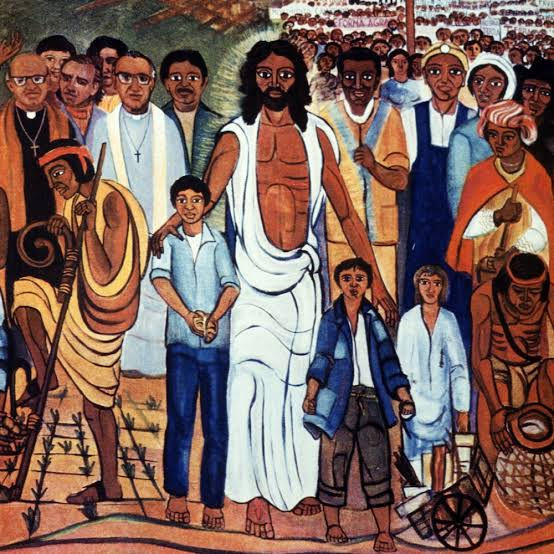Opium or salt?
- Charles
- 4 févr. 2023
- 4 min de lecture
Reflections for the Fifth Sunday in Ordinary Time (Isaiah 58:7-10, 1 Corinthians 2:1-5, & Matthew 5:13-16)
We have all heard of the famous statement of Karl Marx: “Religion is the opium of the people” (Die Religion ... ist das Opium des Volkes). This phrase first appeared in his never completed book A Contribution to the Critique of Hegel’s Philosophy published in 1844. We usually interpret this statement as Mark’s straightforward condemnation of religion. However, there are a few nuances to be added.

Firstly, we need to read this phrase in relation to its preceding sentences. Marx writes, “Religious suffering is, at one and the same time, the expression of real suffering and a protest against real suffering. Religion is the sigh of the oppressed creature, the heart of a heartless world, and the soul of soulless conditions. It is the opium of the people”. For him, religious suffering is both an expression and a protest against real suffering. Religion does not merely try to make us feel better or passively accept conditions of oppression and slavery. It is also a protest against these exploitative conditions.
Secondly, opium, in nineteenth-century Europe was not necessarily associated with substance abuse. It was used in medicine and therapy, especially for the poor, who cannot afford much for their treatment. Such was its importance as a medicine that in the first years of the nineteenth century, people would have understood “opium of the people” as something we could translate into “penicillin of the people”. However, the use of opium did not address the real problem or propose a permanent solution. It simply helped to temporarily forget the pain. So, when Marx calls religion the opium of the people, he actually refers to two crucial risks: 1. The ambivalence of religion which could be used to justify oppression or protest against exploitation and 2. The use of religion as a shortcut to forget pain temporarily and not empower people to search for permanent solutions.

Why are we even discussing Marx’s opinion on religion here? Why bother? Because the two risks that we have underlined continue to be crucial to our Church. This Sunday’s readings provide insights that can help us encounter these two risks that continue to threaten the way we understand and practice our spiritual and religious life. Jesus provides two alternative images that can replace Marx’s metaphor of opium: you are the salt of the earth and the light of the world. Unlike opium, salt is not meant to induce euphoria or drowsiness. It is meant to help you discover the real flavour of your food! It activates your taste cells. Unlike opium, light is not meant to impair your reflexes or dull your perceptions. It is meant to illuminate your room and help you discover the reality of the world around you.
The Gospel also uses a third metaphor that we often tend to overlook: a city on a mountain that cannot be hidden. The city is often scary and frightening for it is the place where the various sicknesses of our contemporary society are most visible: violence, inequality, pollution, corruption, overcrowding, the divide between the rich and the poor, the abyss between victors and the victims, etc., “Are Indian cities now cradles of hate? Kolkata, Chennai and Mumbai have emerged as the last bastions against hate and polarisation”, reads a news article in Deccan Herald (04 January 2023). Cities are frightening because they reveal a part of ourselves that we would love to ignore.
Yet, God's plan for the world is not in the lost Paradise of Eden, the mythical garden of the beginnings. The destiny for all of us in God’s plan is the city of Jerusalem, the city of God, where all of us are gathered for the same glory, dignity, brotherhood and sisterhood. The mission of every Christian does not merely concern the afterlife. We are planted here and now to be the "salt of the earth" and the "light of the world". As‘Gaudium et spes’ promulgated by Pope Paul VI in 1965 states, “The joys and the hopes, the griefs and the anxieties of the people of this age, especially those who are poor or in any way afflicted, these are the joys and hopes, the griefs and anxieties of the followers of Christ. Indeed, nothing genuinely human fails to raise an echo in their hearts.”

By our presence, action, and humble witness, we reveal the true flavour of our ‘cities’. The Christian is like the filament in the light bulb: he can be a light to others only if his/her life is pierced by the light of Christ. Through the light of Christ, we can transform our ‘cities’ into places of love and fraternity, gathering and solidarity, happiness and equality. Isiah invites us in the first reading to minister to the hungry, the homeless, the naked, and the situations of oppression, accusation, malicious speech, etc. Religion is not about adorning the chains of oppression with ornaments of spiritual justification. Being a Christian involves the call to resist the many forms of oppression. Our discipleship is a call to subvert the norms of violence, coercion, and corruption, and thus work towards bringing about the new world now.

Let us prepare ourselves to be pierced by the light of Christ so that the dark ambivalences of our Christian living may give way to social action for justice and peace. Let us resolve to minister to our ‘cities’ here and now participating in the mission of all Christians to be the salt of the earth, the light of the world, and a city on the hilltop that cannot be hidden. Let our witnessing lives be a demonstration of Spirit and power (second reading) that can open the opiated eyes of the world to discover the reality of our families, churches, societies, and the world.




Commentaires